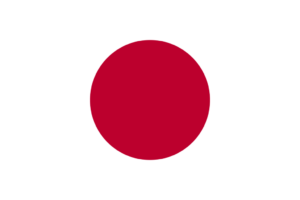Aceris Law is pleased to announce that it has successfully resolved another long-running international dispute, in the solar industry, between American and East Asian businesses. The dispute, which was subject to various laws of the United States, concerned a joint venture to produce solar panels and involved disputed exclusivity provisions, intellectual property disputes, disputed non-compete […]
Actualités
Does an Arbitration Clause Survive the Termination of a Contract?
An arbitration clause in a contract is generally regarded as an autonomous agreement that may survive the termination of the contract that contains it. This presumption is often referred as “separability” or the “doctrine of separability”, according to which an arbitration clause is a “separate contract” whose validity and existence are independent from the substantive […]
Aceris Law Wins Third-Party Funded Arbitration
Aceris Law is pleased to announce that it has won another arbitration, this time funded by a third-party funder, with its client receiving payment of all amounts awarded, minus the portion to be paid to the third-party funder. Aceris Law assisted its client to secure third-party funding at no cost, prosecuted the arbitration successfully, and […]
Bank Guarantees and Arbitration: Resisting a Wrongful Call?
Bank Guarantees are a common feature of international construction contracts. Bank Guarantees are typically used as a security for one party’s (usually the contractor’s) performance of its contractual obligations. Bank Guarantees frequently play a central role in construction disputes as well – either as an important aspect of background facts of the dispute or as […]
Arbitration in Japan
Japan is a pro-arbitration country with a number of arbitral institutions and organizations. The most commonly used institution for commercial arbitration is the Japan Commercial Arbitration Association (the “JCAA”).[1] Its Arbitration Rules were recently amended in order to make arbitration more useful and affordable for parties.[2] Civil and Commercial Arbitration in Japan Civil and commercial […]
Lost Profits in Investment Arbitration
It is common in investment arbitration that investors seek to recover the profits they claim to have lost as a consequence of one or more internationally wrongful acts perpetrated by a host State of foreign investment. Historically, in assessing damages there has been a distinction between damnum emergens (actual losses) and lucrum cessans (loss of […]
Consent to Arbitration Based on Investment Codes
In international arbitration, consent to arbitration can be expressed in different forms, including in domestic laws. While it is widely recognized that States can commit themselves by way of international treaties (or by virtue of contracts covering future disputes), States can also give their consent to arbitration based on investment codes. Due to the significant […]
Russian Sanctions and Arbitration: Analysis of New Russian Law Transferring Exclusive Jurisdiction to State Courts
Six years after the introduction of Russian sanctions by the United States and the European Union, the Russian Parliament has adopted a new law to allow sanctioned Russian entities to avoid arbitration. Arbitrations against companies and individuals targeted by Russian sanctions have today been transferred to the exclusive jurisdiction of Russian State Courts by a […]
Insolvency and Arbitration: What Issues Arise?
The economic disruption caused by the COVID-19 pandemic is expected to lead many corporations to insolvency, as well as trigger an increase in the number of commercial disputes. Consequently, it is likely businesses will have to face more arbitrations with insolvent entities, or arbitrations brought by bankruptcy trustees, when the right to maintain and dispose […]








